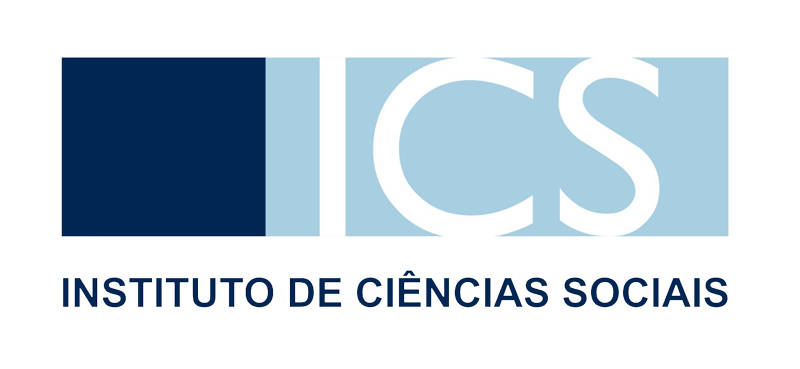
EASA2020:
New anthropological horizons in and beyond Europe
21-24 July 2020 in Lisbon
ISCTE-University Institute of Lisbon and ICS-Institute of Social Sciences, University of Lisbon
EASA 2020 Virtual Lisbon: Behind the Scenes
The EASA2020 Virtual Lisbon conference is almost upon us, and it is going to be the biggest fully virtual conference yet held within anthropology: there are 171 Panel sessions, 22 Films (18 of which you can already watch now), 3 Plenaries, 12 Lab events, 12 roundtables, 31 network meetings, and the Members Forum/AGM. Participants will be able to move from one virtual room to another to attend different events, chat with each other in those rooms, ask questions and have debates. Although everything kicks off at 9 am sharp Lisbon time next Monday (20th July), the formal opening, with a keynote given by Marilyn Strathern (title: "Terms of Engagement"), will be held on Tuesday at 5pm Lisbon time.
The formal opening on Tuesday (21 July) will be followed by a virtual mingling, drawing on the Shindig platform’s ability to provide networking space. That networking space can be used for private meetings as well as public ones, so participants can catch up with friends, discuss the last panel they just attended, meet other panel participants before their panel is being held, or even book a meeting with a representative of a publisher or journal. There will also be a virtual book exhibit, in which you can browse both new titles and the backlist of many publishers; in some cases, you can also read sample chapters within the Combined Academic Publishers section, and Sean Kingston publishers are having a book launch during the conference. And there is a final late party on the Friday, when there will be music; we hope participants, wherever they are, will feel moved to join in from their own rooms or gardens.
Pulling all of this together in the space of a few weeks, having originally planned a face to face conference in Lisbon, has been a gargantuan task. The vast bulk of this work has fallen on the shoulders of EASA’s conference organizers and administrators, NomadIT: they have had to double the number of people helping out on the organizational side of this, both because of the steep learning curve everyone has been on in order to transform everything from a physical event into a virtual one, and because of the additional work that involves. As Triinu Mets, one the main conference planners put it:
"We have never had to create new tools for our work from scratch, or learn entirely new worlds in a week - the process we have for organising face to face conferences is well honed, tried and tested like a comfortable, smooth handle…we had to let that go and grab on to something alien and splintery."
The founder of NomadIT, Rohan Jackson, described a bit more about the sheer volume of the work involved:
"We’ve had to research online platforms, negotiate with providers, discuss with and advise all of our clients, build training materials and online event policies, train hundreds of panel convenors and volunteers … as well as accelerate the overhaul of our own IT infrastructure - all in the space of 4 lock-down months. While I see furloughed neighbours enjoying the sun in their gardens, I’ve been chained to my screens for 14hrs a day or more most days since lock-down began. The team has logged more than 1350 hours on EASA2020 in the past four months (not including my time, the new part-timers, or the IT overhaul)."
Another member of the team, James Howard, who led the organization of a virtual version of the Development Studies Association conference this year, as well as assisting with EASA’s conference, commented:
"Organising these two fully virtual conferences has been novel and exciting but extremely time-consuming and labour intensive compared to face to face conferences. Our whole team and extra help is needed to do this whereas smaller sub-teams usually manage the organisation of face to face conferences. … The actual conference week is very new and intense, involving a variety of communication channels and the whole team working in shifts."
Of course, a virtual conference has also involved additional work for the participants, as mentioned by Rohan Jackson:
"It’s hugely labour-intensive, and this also imposes additional load on the delegates: from the need to view our training materials and attend trainings, to presenters having to consider pre-recording their presentations and uploading the slides in advance."
In addition, there was enormous work and effort put in by the team in Lisbon, both before the decision to make the conference a virtual one, and afterwards: our colleagues in Lisbon have provided a range of resources to help give the conference its Lisbon feel, albeit online.
As is always the case with well-organized events, the better the organization, the less visible is all the work that went into making it so. Given the groundbreaking character of this conference, and the particular invisibility of what needs to be done to organize events virtually, we thought it would be worth opening the door to the backstage a little before we raise the curtain on the event itself.
Finally, the strongly positive responses to holding a virtual conference have kept everyone going through the periods of solid, non-stop work. This way of running a conference makes it far more accessible and affordable for many people, and is much more environmentally friendly than face to face conferences. Megan Wainwright, who proofreads the conference materials amongst other tasks, put it this way:
"I couldn’t be happier about an online conference. I am still affiliated to an academic institution, but I work as a consultant and I very much recognize now the privilege I had when working in academia to attend such conferences. I’ve been saying for years that conferences need to go online or at least have an online option. For one, an online conference doesn’t require me to take additional time off (unpaid) from my consulting work to travel to conference locations. Secondly, it’s overall far more affordable for someone without access to institutional funding. Thirdly, I feel better about not travelling so much as I am concerned about the environmental impact of in-person conferences. Fourthly, I think it opens up opportunities for far wider participation – e.g. people on low incomes, people with young families or elderly parents who they can’t easily leave behind, people living far away from host cities, people with disabilities, and people working in applied settings that may get the chance to participate in one day of a conference but not an entire four-day conference with travel either side."
On behalf of the EASA Executive, I warmly welcome you all to the EASA2020 Virtual Lisbon conference.
Sarah Green, President
14th July 2020











